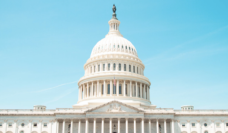The Democratic Presidential field recently assembled in Georgia, debating who has the right path forward for America. On health care, some embrace a transformational shift to a single payer plan, like Medicare for All, while others argue for a less disruptive approach. Former Vice President Biden claimed that “the vast majority of Democrats do not support Medicare for All,” despite polls showing that more than three quarters do. On the other side of the aisle, Republicans are still struggling to find their footing after expending a lot of political capital trying to repeal the Affordable Care Act.
A recent survey shows that the country is split pretty evenly between three paths—single payer, incremental expansion, and stepping backwards from the ACA—with nearly two-thirds favoring some form of a Democratic approach. Yet, a number of missing or unclear policy details in the Democratic candidates’ plans are making some voters uneasy.
But assume, just for a moment, that we can suspend our instincts to retreat to our ideological corners. What is the real choice ahead?
One path is to put window dressing on the status quo, filling in a few more holes and finding ways to cut premiums and out-of-pocket costs. This isn’t a bad option, and it’s certainly more reasonable than giving back the gains in insurance coverage and consumer protection by repealing or striking down the ACA without concrete next steps. However, incremental change doubles down on all of the flaws that make our health care system the most expensive and frustrating in the developed world.
We would be better off not spending billions of dollars every single year on administrative costs that contribute little to improving our health, to say nothing of the frustration avoided in dealing with the status quo. Weaponized bureaucracy and rising deductibles put lives at risk every single day.
The debate over single payer isn’t about one policy that will solve everything. It means deciding that what we are doing isn’t working and committing to a simpler, more equitable system that covers everyone.
No one should have to worry about choosing between too many or too few plans, incomprehensible bills, being terrified that an anesthesiologist is out-of-network, or that cancer treatment will bankrupt their family. Patients shouldn’t be fighting state-by-state for access to necessary treatment.
Single payer also brings with it the ability for the government to be a “take it or leave it” negotiator with pharmaceutical companies, hospitals, and doctors—real power to lower prices. Should people have to die because they can’t afford health insurance or their care?
Many might say “no, there are programs to help those who can’t afford their care.” This ignores the dark underbelly of states being “laboratories of democracy.” The same person might live in one state and die in another, for no other reason than policymaking often based on the skin color of those who stand to benefit. The decision not to expand Medicaid in all states has cost thousands of lives, while stigma and discrimination make those who do have Medicaid second-class citizens. Arkansas dropped 18,000 from Medicaid with new work requirements before a judge put the policy on hold. Ninety seven percent of those subject to the policy already met the requirements or were exempt so what was really the goal? Cutting Medicaid rolls.
Our confidence in and the stability of HealthCare.gov shouldn’t be swayed simply by who is in the White House. My research shows that politics matter a lot. In a recent analysis, my colleague and I found that Marketplace applications dropped by nearly 30% following Trump’s inauguration. Partisan-driven enrollment behavior only makes premiums go up, causing a self-fulfilling cycle of rising costs, low participation, and poor perceptions of the ACA. Our health and access to care are too important to leave twisting in the political winds.
We can transform how we pay for health care without drastically changing how care is delivered, creating more competition and choice in the place where we want it. Between doctors and hospitals. The debate over single payer isn’t about one policy that will solve everything. It means deciding that what we are doing isn’t working and committing to a simpler, more equitable system that covers everyone. I will support a candidate who recognizes this and supports a transition to a single payer system. I hope you will, too.
Photo by Element5 Digital on Unsplash














